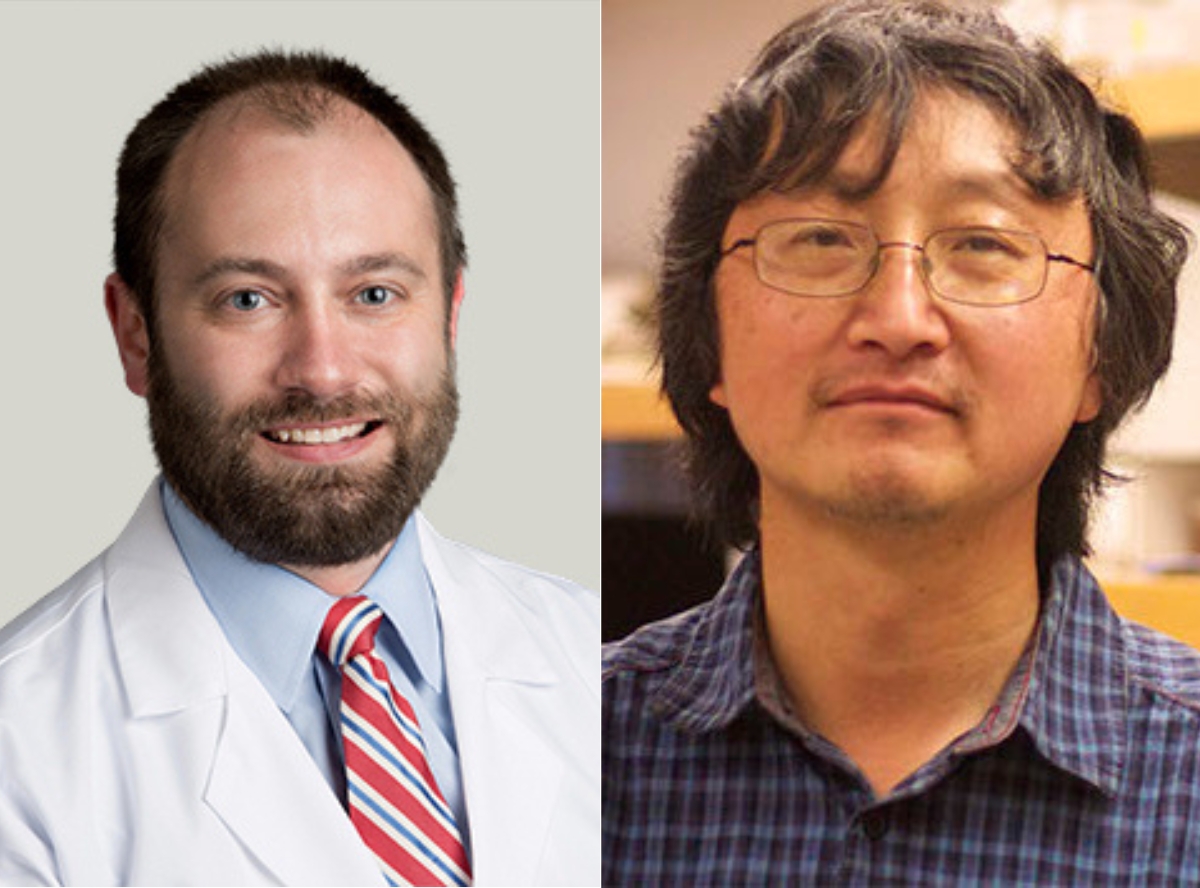Changing Lives Through Groundbreaking Science
Using robust scientific and lay review, in the 2023 cycle, the GI Research Foundation awarded $550,000 to six investigators at the University of Chicago for novel research projects.
2023 Competitive Grant Cycle Awards
Using robust scientific and lay review, in the 2023 cycle, the GI Research Foundation awarded $550,000 to six investigators at the University of Chicago for novel research projects.
How Tumor Genetics and Diet Impact Colorectal Cancer Recurrence
Benjamin Shogan, MD and Tao Pan, PhD
THE PROBLEM
Colorectal cancer (CRC) is the second leading cause of cancer-related death in the US. Even after surgery, CRC recurs in about 30% of patients, almost always with lethal consequences. Most effective tumor treatments target multiple cellular mechanisms. Tumor genetic- and diet-dependence of postoperative tumor formation and metastasis is underexplored.
Recent studies provide evidence that gut bacteria, including bile acids, can influence growth and metastasis of colorectal tumors. However, how the genetic makeup of tumors also drive recurrence in conjunction with gut bacteria and bile acid compositions is not well understood.
THE HYPOTHESIS
Bile acids enriched by a low-fiber / high-fat diet interact with specific genetic mutations to drive postoperative CRC recurrence.
THE RESEARCH PLAN
- By studying mice and tumoroids, determine which bile acids promote tumor progression of different tumor cells that have distinct genetic make-ups.
- Looking at mice and tumoroids, determine the mechanism by which bile acids promote proliferation and activation of specific tumor cells and recurring tumors in a diet-dependent manner.
- By studying human resected CRC, determine how bile acids promote proliferation and cellular pathway activation.
THE GOALS
Our results will provide novel insight into the role of diet-dependence and bile acids on the promotion of an aggressive type of metastatic cancer cells leading to CRC recurrence. This proposal forms the groundwork for a clinical trial that targets the bile acid pathways to prevent CRC recurrence for tumors with certain genetic backgrounds.
THE PROGRESS
Using animal studies, the research has:
- found that a high-fat diet, which is the primary environmental risk factor for human CRC recurrence, increases the abundance of certain bile acids.
- discovered that one such bile acid, deoxycholic acid, can increase the growth, proliferation, and viability of tumor cells, but only in cells that exhibit specific malignant genetic mutations.
- begun to uncover the cellular pathways in cancer cells that are influenced by deoxycholic acid.
“Using a combination of scientific and lay review, the GI Research Foundation has awarded $550,000 in grants. We are so proud and privileged to be in partnership with the University of Chicago Medicine’s Digestive Diseases Center. Our competitive grant program supports novel research projects led by its investigators. This partnership provides us with extraordinary opportunities to be a first-in funder of groundbreaking ideas and has resulted in millions in funding from the National Institutes of Health. We are excited about the promise of these funded projects.”


